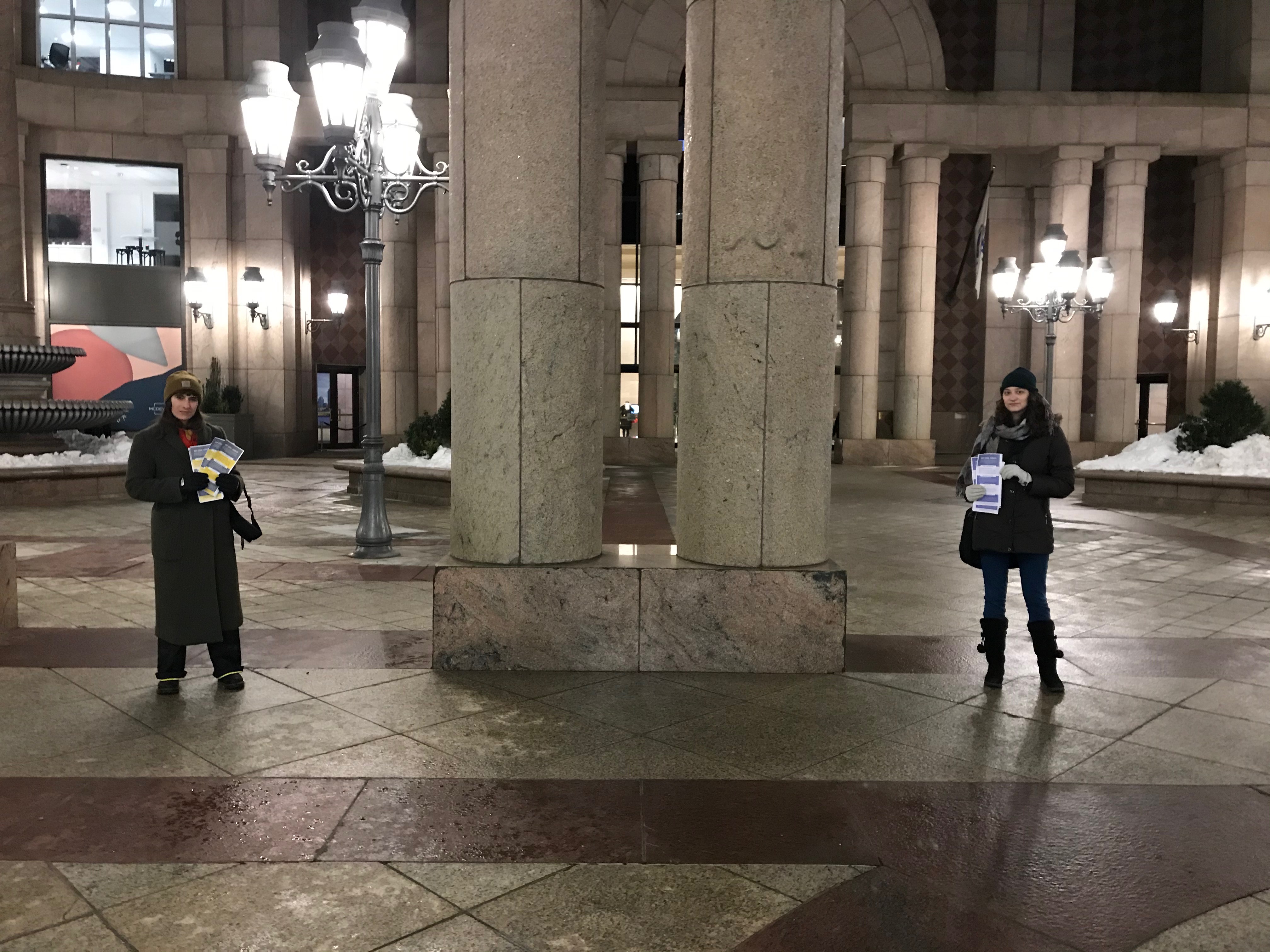On Tuesday, January 21, Cooley LLP held a recruiting event for law students in the Boston area called “Planning Ahead: Tips for Surviving Fall Recruiting and a Preview of Law Firm Life.” But the People’s Parity Project showed up to make sure that prospective associates know what Cooley won’t advertise: that employees of Cooley are forced to give up their legal rights when they come to work.
Law students from the People’s Parity Project joined together to educate our peers about how Cooley’s forced arbitration policy threatens our civil rights—by leafleting on the sidewalk outside Cooley’s reception in Boston, MA. The People’s Parity Project is no stranger to leafleting outside of law firms that use forced arbitration, but this is the first time law students have shown up at Cooley’s office.
Cooley’s Forced Arbitration Policy
Forced arbitration provisions make employees, as a condition of employment, to waive their right to sue their employer for any reason—including if they experience harassment or discrimination on the job, which is rampant in the legal profession. Instead, they have to bring their claims in a binding, private arbitration process in which employers have the advantage. The result of arbitration disproportionately benefits employers: victims who are forced into arbitration are “less likely to win their cases, and when they do win, they tend to get much less money than they would win in court.” Forced arbitration allows employers to break the law without being held accountable in the legal system, and the consequences are disproportionately borne by women, people of color, LGBTQ+ people, and low-wage workers.
In 2019, Cooley responded to a survey sent out by Harvard Law School that required employers to disclose their forced arbitration policies in order to recruit on campus. Cooley subjects its own employees to forced arbitration—which means that our classmates who want to work for Cooley would be forced to choose between their civil rights and their job.
We don’t think anyone should have to make that choice. And although Cooley’s forced arbitration policy has an exception for at least some instances of discrimination and harassment, this carveout is not enough. It shows Cooley knows that forced arbitration impedes justice—but inflicts it upon its employees anyway.
#DumpCooley
Cooley has been on notice for several months that law students find their forced arbitration policies unacceptable. In November, 14 LGBTQ+ law student organizations from top law schools pledged to refuse funding from law firms like Cooley that make their workers sign forced arbitration agreements. And the People’s Parity Project has been spreading the word about Cooley’s forced arbitration policy:
We noticed @CooleyLLP hanging out on campus today. ? Here’s what we think you should know about your rights if you’re considering Cooley as a future employer. ? pic.twitter.com/gtsYiCdzjQ
— Harvard Parity Project (@HarvardParity) December 2, 2019
Under increasing scrutiny from law students, many law firms voluntarily dropped their forced arbitration policies before they became the target of a boycott. Others, like Kirkland, needed a little more pressure. But Cooley still hasn’t gotten the memo. That’s why we’re taking to the sidewalk to #DumpCooley.
“We’re here because students need to know that the rights they’re learning to protect won’t be afforded to them at firms like Cooley,” said Kearney Coghlan, a 1L at Harvard Law School. “Forced arbitration creates a culture of impunity for employers, at the expense of employees’ safety and dignity.”
Until Cooley drops forced arbitration for all its employees, we’re asking our fellow law students headed into recruitment season this year: Don’t interview with Cooley LLP until they promise to stop making any of their employees—no associate, paralegal, custodian, or contractor—sign these coercive contracts.
